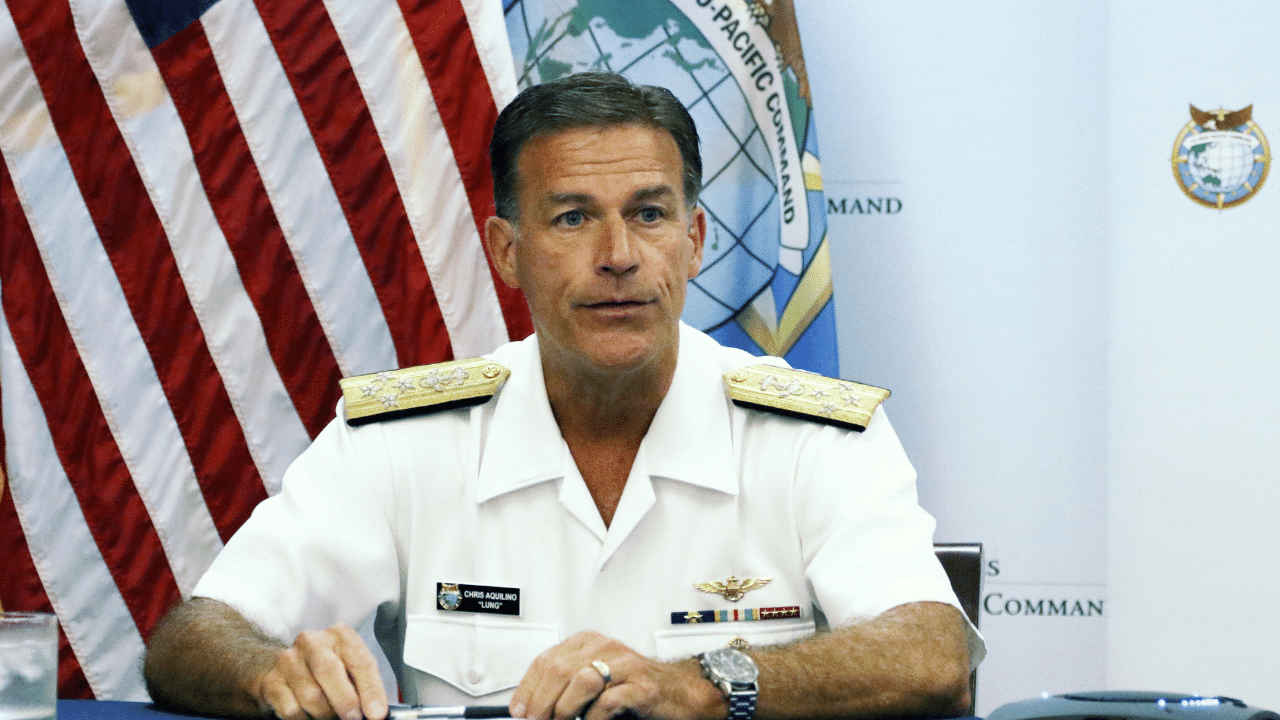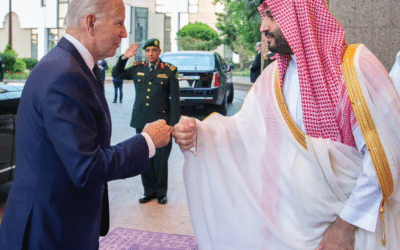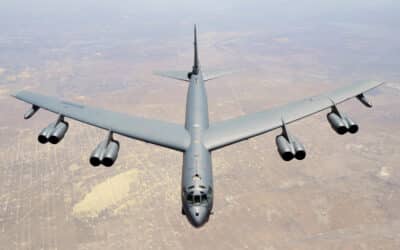The commander of US Indo-Pacific Command, Admiral John Aquilino, highlighted the military’s threatening posture towards China, speaking at the annual meeting of the National Committee on US-China Relations last month. The group is known for encouraging engagement between the world’s two largest economies.
In yet another confirmation that the White House has overturned the long-standing “strategic ambiguity” policy regarding Taiwan, Aquilino went so far as to say President Joe Biden and Secretary of Defense Lloyd Austin have tasked him to win a war against China if Beijing attacks the island.
“What I can tell you is the secretary and the president have tasked me with two missions. The first is to prevent this conflict. And then the second one is if I fail at Mission One to be ready and prepared to fight and win… the United States military is manned, trained, equipped, postured and ready to execute both of those missions,” the INDOPACOM chief said.
Per the former approach, the US would never commit to defending or not defending the island against a potential attack on the breakaway province. Critically, “strategic ambiguity” has aimed to deter Beijing from attempting to retake the island by force and, at the same time, to discourage Taiwan’s radical factions seeking to declare independence.
In an earlier speech at the conference, the admiral insisted the policy on Taiwan, including One China, had not changed and “we do not seek an independent Taiwan.” Aquilino further claimed the US does not want war but “seeks only peace and prosperity and stability, not confrontation” with China.
Both of these claims are belied by the fact that, in 2011, the Barack Obama administration launched the “pivot to Asia.” The policy has been ramped up by each successive president. The “pivot” entails the largest military buildup since the Second World War, shifting hundreds of bases as well as two-thirds of all US Air and Naval forces to the Asia-Pacific region. Washington is encircling China for a future war with Beijing.
The US is committing billions of dollars in military aid to Taiwan, expanding US National Guard training programs with the Taiwanese military, continually sending more Congressional delegations to the island, deploying higher numbers of US troops to the island, training hundreds of Taiwanese soldiers for war on US soil, converting Taiwan into a “giant weapons depot,” and sailing American warships through the sensitive Taiwan strait almost every month.
China has made clear that Taiwan is a “red line.” While the American side promises they only want to “deter” war with these actions, Beijing has repeatedly said that they seek a “peaceful reunification” with Taiwan but they have not ruled out using force. Washington’s actions make war more likely.
During the last few years, the US has vastly increased the presence of warships and spy planes in the South China Sea, the East China Sea, and the Yellow Sea, including near China’s coast. Beijing has recently responded by taking actions to deter these naval patrols, including in the Taiwan strait, and US flights in the region.
Stephen Orlins, the chairman and chief spokesman of the group, asked Aquilino “You say we have more dangerous intercepts by the Chinese. Well, the Chinese say, ‘Well, there’s an easy answer. Run fewer surveillance flights, then there’ll be fewer dangerous intercepts.’ Given the capability of our satellites, do we need to run as many surveillance flights as we do? And can you give us a sense as to how many are actually run these days?”
Refusing to entertain any US culpability for the unstable relations, Aquilino said to Orlins “I understand the argument that says, “If you would just leave, I would be happy.” That’s an interesting argument. That said, it’s just not going to happen.”
Aquilino blamed Chinese “dangerous and escalatory actions” against the US for the situation, but Washington’s substantial military interventions in the region are making conflicts and accidents more likely.
According to The South China Sea Strategic Situation Probing Initiative (SCSPI), a Beijing-based defense think tank, in 2022 “there were about 1,000 sorties by large US reconnaissance aircraft into the South China Sea region – some as close as 13 nautical miles from the baseline of China’s mainland territorial waters – eight entries by US aircraft carrier strike groups and amphibious alert groups and at least 12 by nuclear-powered attack submarines.”
Aquilino censured China over the breakdown in communication between the two militaries. Orlins asked “the Minister of National Defense is sanctioned by the US government. Can our military take a position on whether that’s good policy? In other words, if he’s sanctioned, it’s highly unlikely he’s going to answer the phone.” Biden’s refusal to lift the sanctions on Chinese Defense Minister Li Shangfu was cited by Beijing as a reason for not holding a meeting between the two military chiefs at the Shangri-La Dialogue in Singapore last week.
Having none of it, the admiral simply warned “we’re postured in the appropriate places. The United States does not choose to escalate. We are not being provocative [but] I’m confident that we’d be able to fight and win wherever it went.”
He continued, asserting there is no “one trick pony here that we utilize to both deter and then if we were to, unfortunately, get in any kind of conflict. For the United States, it’s the synchronization integrated efforts of the entire joint force under sea, on the sea, above the sea, in space and cyberspace. So, if anyone were to choose to take on the United States, they’re going to get the full Monty.”












